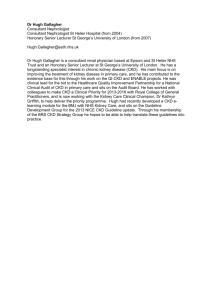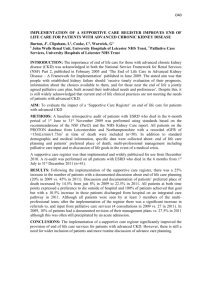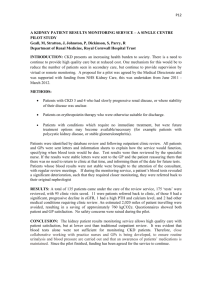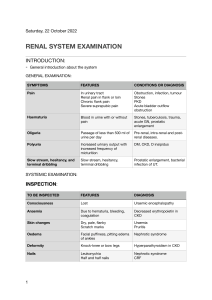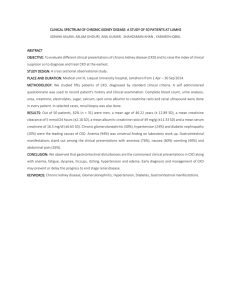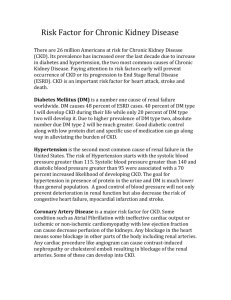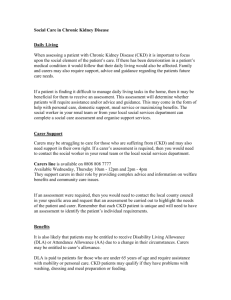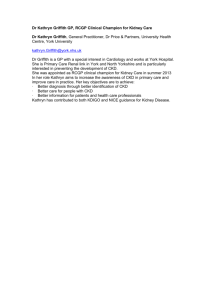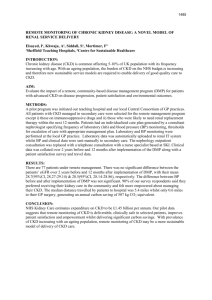Patient Information Leaflet V10
advertisement
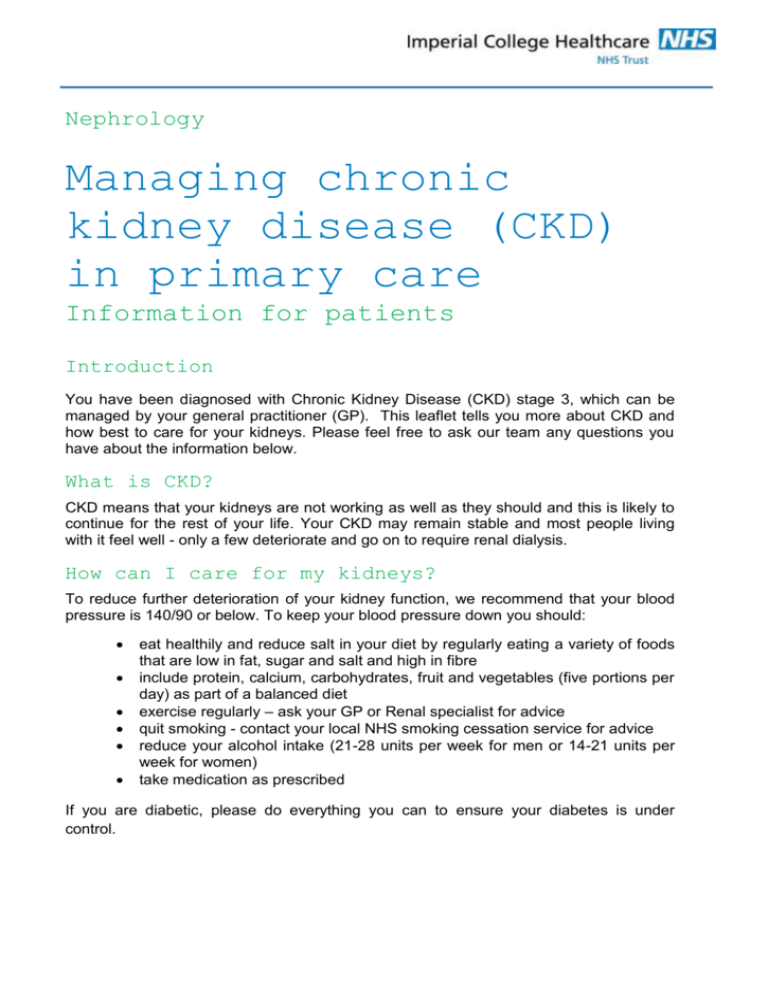
Nephrology Managing chronic kidney disease (CKD) in primary care Information for patients Introduction You have been diagnosed with Chronic Kidney Disease (CKD) stage 3, which can be managed by your general practitioner (GP). This leaflet tells you more about CKD and how best to care for your kidneys. Please feel free to ask our team any questions you have about the information below. What is CKD? CKD means that your kidneys are not working as well as they should and this is likely to continue for the rest of your life. Your CKD may remain stable and most people living with it feel well - only a few deteriorate and go on to require renal dialysis. How can I care for my kidneys? To reduce further deterioration of your kidney function, we recommend that your blood pressure is 140/90 or below. To keep your blood pressure down you should: eat healthily and reduce salt in your diet by regularly eating a variety of foods that are low in fat, sugar and salt and high in fibre include protein, calcium, carbohydrates, fruit and vegetables (five portions per day) as part of a balanced diet exercise regularly – ask your GP or Renal specialist for advice quit smoking - contact your local NHS smoking cessation service for advice reduce your alcohol intake (21-28 units per week for men or 14-21 units per week for women) take medication as prescribed If you are diabetic, please do everything you can to ensure your diabetes is under control. How often should I be monitored? You should visit your GP surgery every 6 – 12 months for regular monitoring. This will include: a blood test (to check your kidney function and that you are not becoming anaemic) a urine test (dipstick urinalysis to check for protein, blood or infection) blood pressure monitoring If blood test results show deterioration in your kidney function your GP will immediately refer you back to the consultant nephrologist for further assessment and advice. How do I make a comment about my visit? We aim to provide the best possible service and staff will be happy to answer any of the questions you may have. If you have any suggestions or comments about your visit, please either speak to a member of staff or contact the patient advice and liaison service (PALS) on 020 3313 0088 (Charing Cross, Hammersmith and Queen Charlotte’s & Chelsea hospitals), or 020 3312 7777 (St Mary’s and Western Eye hospitals). You can also email PALS at pals@imperial.nhs.uk. The PALS team will listen to your concerns, suggestions or queries and is often able to help solve problems on your behalf. Alternatively, you may wish to express your concerns in writing to: Chief Executive - Complaints Imperial College Healthcare NHS Trust Trust Headquarters The Bays, South Wharf Road London W2 1NY Alternative formats This leaflet can be provided on request in large print, as a sound recording, in Braille, or in alternative languages. Please contact the communications team on 020 3312 5592. Renal and Transplant Directorate Published: April 2015 Review date: April 2016 Reference no: V1.0 © Imperial College Healthcare NHS Trust


